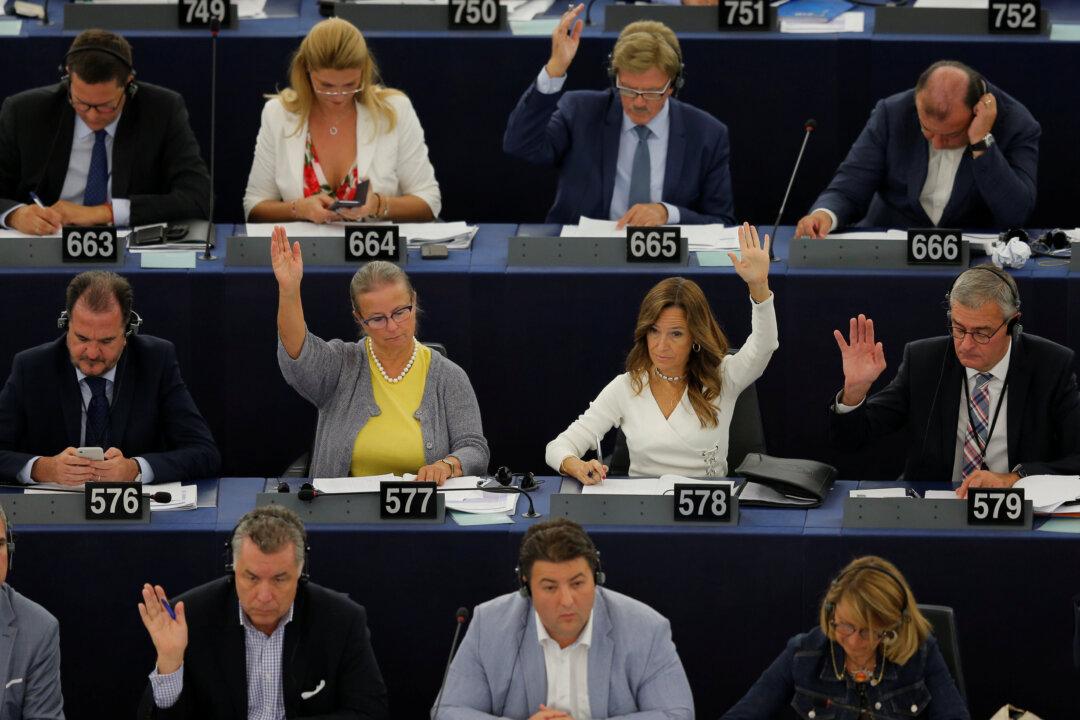BRUSSELS—European lawmakers voted to significantly strengthen copyright laws on the continent after a battle that pitched big tech companies against publishers and artists.
Members of the EU Parliament backed a series fiercely contested proposals, which have been designed to help struggling creative industries survive the internet era, by a significant margin. They voted 438-226 on Sept. 12 to approve a new Copyright Directive, overcoming fierce opposition from web giants, including Google and Facebook.
The new law contains two controversial measures that regulators hope will help creators, like journalists and musicians, claim back a bigger slice of the revenue websites generate from using their content.




